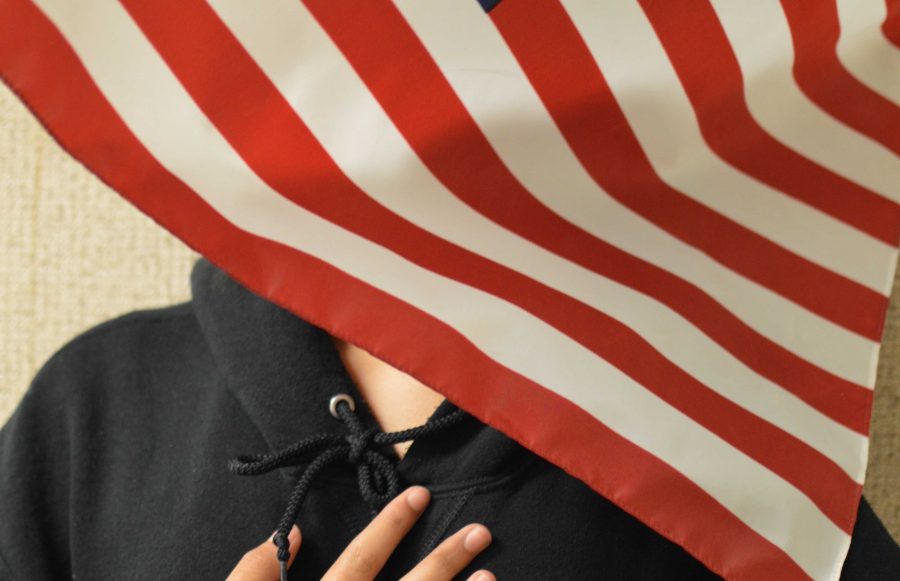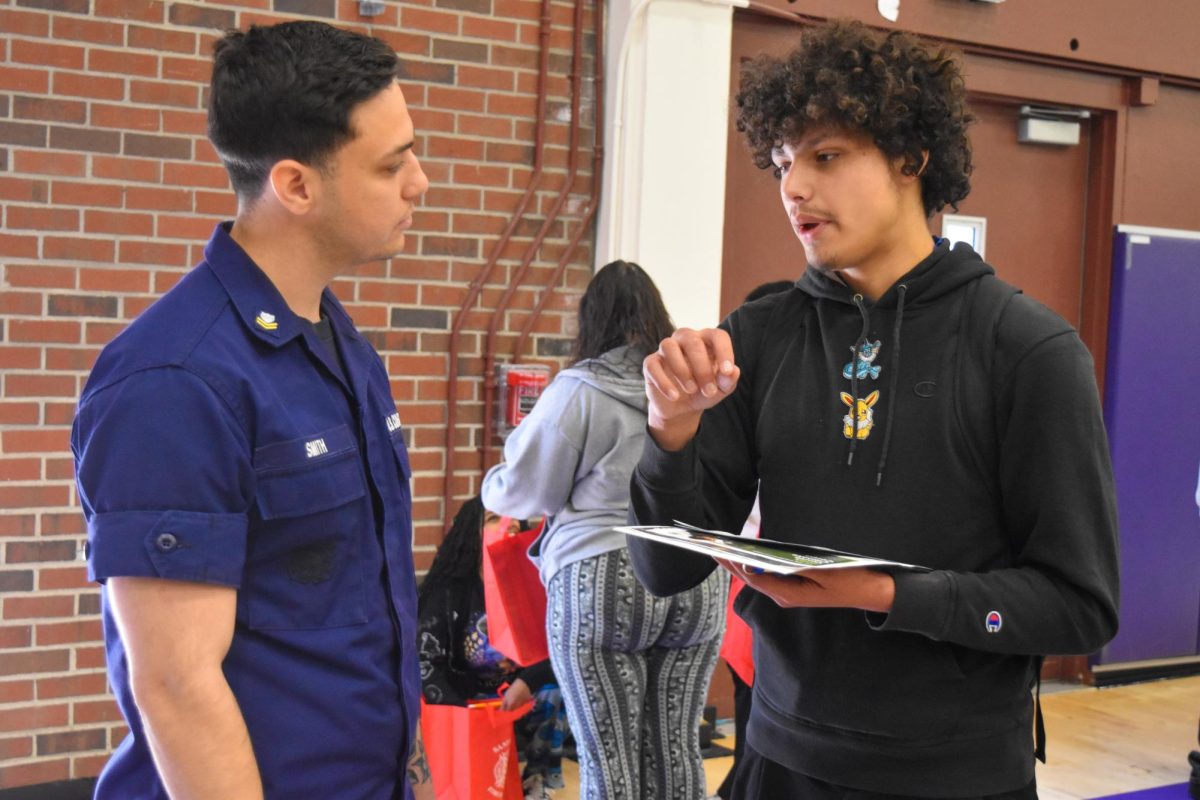In elementary school, U.S. History teacher Ben Recktenwald would never recite the whole Pledge of Allegiance. He would say, “one nation,” pause, then continue with “indivisible, with liberty and justice for all.”
Recktenwald didn’t skip “under God” to make a statement, nor did he think it would become a topic of discussion. But years later, matters concerning the Pledge of Allegiance are at the forefront of national media. On Sept. 27, a local news outlet reported that an 8-year-old in Midland, Texas took a stand against police brutality by kneeling during the Pledge of Allegiance at school. He was sent home.
“When it was first suggested, the Pledge of Allegiance originally was seen as a stupid idea because the United States doesn’t pledge to symbols and flags,” Recktenwald said. “We are a nation of laws, not some piece of cloth.”
However, according to a San Francisco Chronicle article from 2013, laws in 45 states, not including California, require schools to pledge to, as Recktenwald would say, “some piece of cloth.” While a Supreme Court case ruled that students cannot be compelled to recite the Pledge of Allegiance, the encouraged patriotism in schools is still widely debated.
“People always have wiggle room,” ASB Secretary and senior Maddie Park said. “Government isn’t enforcing patriotism as in indoctrinating necessarily, but just trying to create a sense of community within the country. [But] if you look at it from far away a bunch of people reciting the pledge, it can look kind of robotic and like brainwashing of some sort so I can see why some people might feel uncomfortable saying it.”
California, however, is not one of the 45. Rather than encouraging the pledge of allegiance, California Education Code 52720 requires every public school to conduct “daily appropriate patriotic exercises” — the pledge is a viable option, but not the only one. For instance, MVHS opted out of participation in a daily Pledge of Allegiance, and instead has a Historical Thought of the Day broadcasted on the announcements.
“I think it’s always important to look back at the significance of history,” Park said. “I mean, we’re part of history, so it’s also a reminder that it’s not just Monta Vista and it’s not just another day, that everyday matters in a historical sense and in the sense of what it is and what it will be.”
Every Thursday, ABS social manager and senior Bhushan Balagar walks to the office at the beginning of 5th period, preparing to broadcast the daily announcements. It was only last year that he discovered the Historical Thought of the Day was a replacement for the Pledge of Allegiance. He prefers this substitute.
“It’s nice because you learn something everyday, while gaining a sense of appreciation for our country,” Balagar said. “Whereas if you do the Pledge of Allegiance everyday it gets repetitive and some people just start to not pay attention.”
Every school day, senior clerical assistant Jennifer Giarritta searches for a new Historical Thought of the Day by referring to website Today in History.
“Since it is only my second year, I try to come up with new ones [from year to year], but I think I may have repeated the Babe Ruth,” she said laughing. “It was a Friday.”
While she sees value in Historical Thought of the Day, ultimately she thinks it falls short compared to the Pledge of Allegiance.
“I think the Pledge of Allegiance is the best thing,” Giarritta said. “It’s patriotic, and it brings our country together as one. We are the United States. It’s our country. We should be proud of it.”
Recktenwald has a different take on this issue. While he does believe teaching patriotism in school is a good idea, he does not think it should be forced on students.
“I think the unconditional love for your country is a stupid idea,” Recktenwald said. “The way I think of it, the way you learn religion in school, it is about educating you about what the religion is like, how people are different and the same, whereas with patriotism you can’t force someone to love their country, but you can talk about ‘here’s all the positive aspects, and be aware of the negative aspects.’ And, brother, have we got a lot of negative aspects.”
Park also supports having Historical Thought of the Day over the pledge. She said the pledge would be difficult to do every day since it is “lengthy” and students may “just tune out,” while Historical Thought of the Day offers a lot more diversity.
“If you think about the things that have happened to our country and the things that our country has done there’s a sense of patriotism in that which is a lot more varied than the pledge of allegiance,” Park said.
Recktenwald thinks neither the Pledge of Allegiance nor Historical Thought of the Day increases patriotism in students.
“I find that a lot of kids in school ignore it anyway, just like when people say the pledge of allegiance,” Recktenwald said. “They are just going through the motions.”
After 49ers second string quarterback Colin Kaepernick decided to kneel during the national anthem in protest against perceived social injustice in America, the question of patriotism rose to the center of American discussion.
Balagar has heard many differing opinions about Kaepernick’s actions. While some claim that his decision was disrespectful to soldiers who fight for the United States, he has also heard opinions from soldiers on the news, who believe that Kaepernick is merely exercising the rights that they fight for.
“Personally, I think it’s fine that he’s expressing his rights that way,” Balagar said. “And he’s actually started a movement that’s gaining attention, so at least it’s worked.”
Along with the support, Kaepernick’s decision was also met with a lot of criticism. Recktenwald believes a lot of it was unwarranted.
“The whole idea that ‘if an athlete expresses his opinion all of a sudden, he is a jerk’ [is wrong],” Recktenwald said. “Two days before, he is the greatest thing ever, but as soon as he opens his mouth, you don’t want to hear it. There is a certain element of ‘I don’t care who you are. I just want to see you play the game.’ But, he is also a human being; he is an American, born and raised.”
Kaepernick has inspired many similar protests throughout the country, including that of the 8-year-old Texan who was sent home.
“Some people [feel] that the pledge of allegiance is kind of false, that it’s not really a nation for equality and justice and all people,” Park said. “It’s a personal thing… [Other] people think it ties too closely to religion.”
In 1954, President Dwight D. Eisenhower encouraged Congress to add the phrase “under God” in the pledge to prove, as Recktenwald said, that Americans were not “ungodly Communists.” Sixty two years later, the phrase sticks.
But in Recktenwald’s room, atop the intercom, hangs a post of the original Pledge of Allegiance without “under God.” Written below: “The original pledge before it was corrupted in 1954.”














